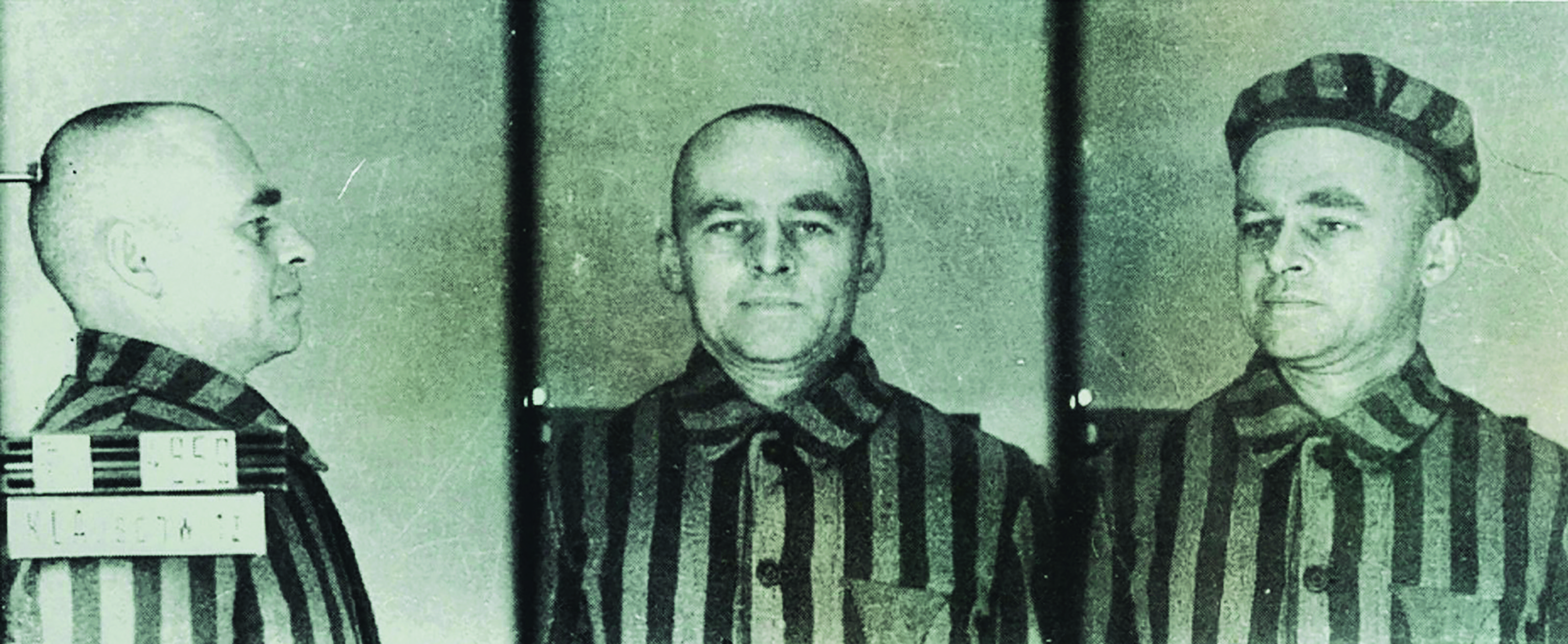Witold Pilecki spent two and a half years trying to sabotage the infamous camp from within
In 1940, Polish underground leader Witold Pilecki did the unthinkable: He willingly arranged to be imprisoned in Auschwitz, the labor complex that swelled into Nazi Germany’s largest concentration and death camp.
Author Jack Fairweather uses diaries, letters, and more to piece together the little-known story of Pilecki, a cavalry officer from small-town gentry who joins his country’s resistance when Nazi Germany invades Poland. Though respected within the movement, Pilecki makes an enemy with competing political priorities; this rival proposes to top brass that Pilecki infiltrate a new prison camp in the town of Oświęcim, rumored to be filled with captive Poles. Pilecki puts on a brave face and accepts the mission, orchestrating his own arrest with few clues to the horrors awaiting him beyond barbed wires.
When Pilecki arrives at Auschwitz in September 1940, the camp’s infamous gas chambers are still neither conceived nor built, nor is the neighboring death camp at Birkenau. Still, with daily beatings and little food, he must struggle to keep both himself and his burgeoning network of Polish resistance cells within the camp alive. Fairweather doesn’t skimp on the daily brutality of Auschwitz; Pilecki only survives at all thanks to work assignments in the camp’s hospital and its woodshop, which shield him from hard labor. From these protected perches, he observes the Nazis refining Zyklon B, ramping up liquidations, cracking crematorium chimneys from overuse, and congratulating themselves on their efficiency as mass murderers.
Pilecki instructs released prisoners and escapees alike to share this intelligence with resistance command in Warsaw. Through them he sends letters, maps, and diagrams to largely indifferent world leaders, begging Allied forces to bomb the camp. All the while, Pilecki must protect his underground—a job entailing everything from comforting friends and lieutenants to murdering kapos and potential leakers—while ensuring his own survival. Ulimately, Pilecki does survive—sucessfully escaping from Auschwitz in 1943, only to be executed by Soviets as an anticommunist traitor in 1948.
Fairweather’s prose, occasionally workmanlike, still paints vivid scenes between characters and their grim circumstances. Pilecki tried to reveal Auschwitz’s true nature to the world; now, decades later, The Volunteer does the job for him. ✯
This story was originally published in the October 2019 issue of World War II magazine. Subscribe here.





